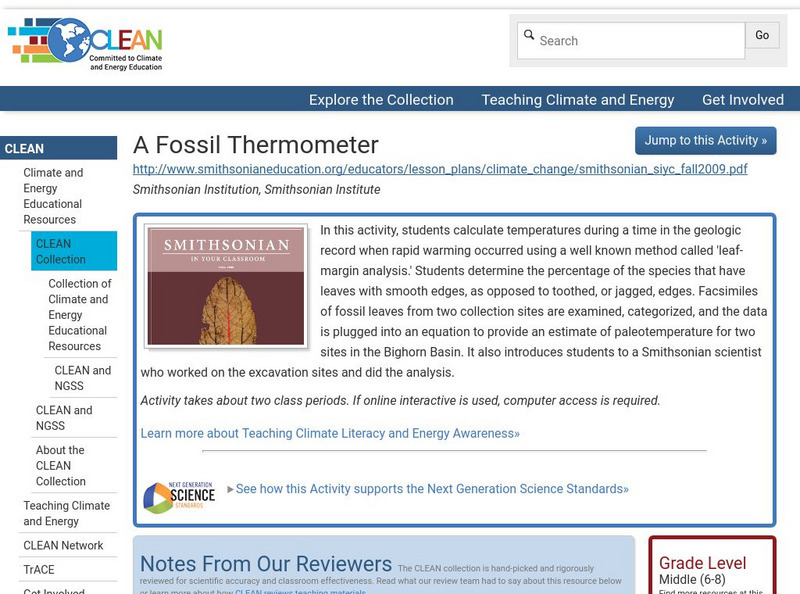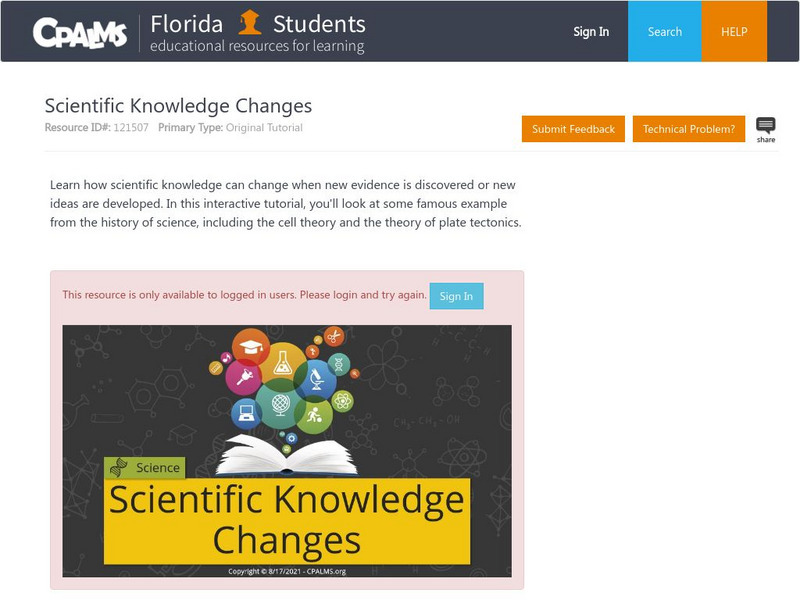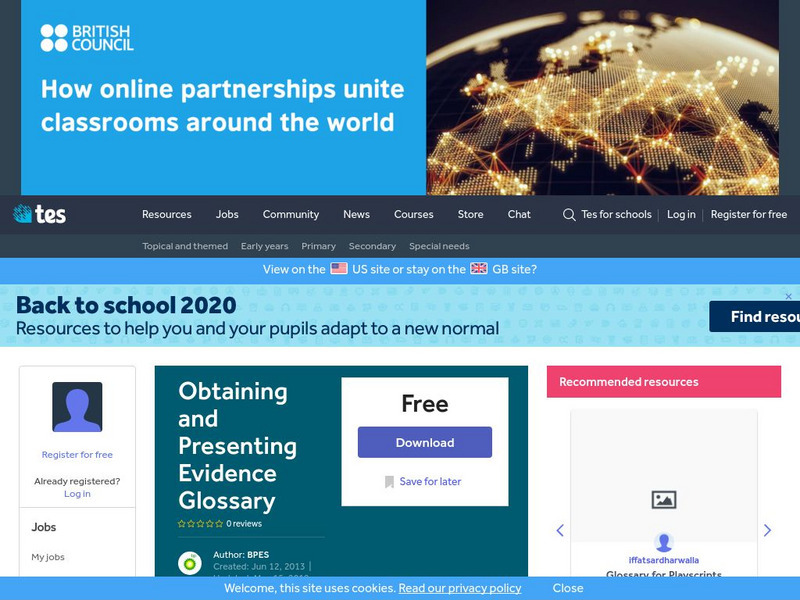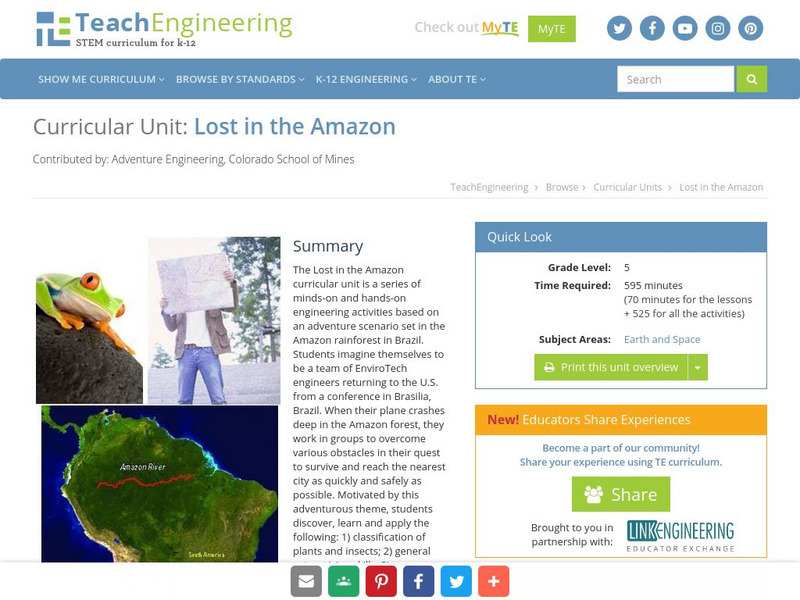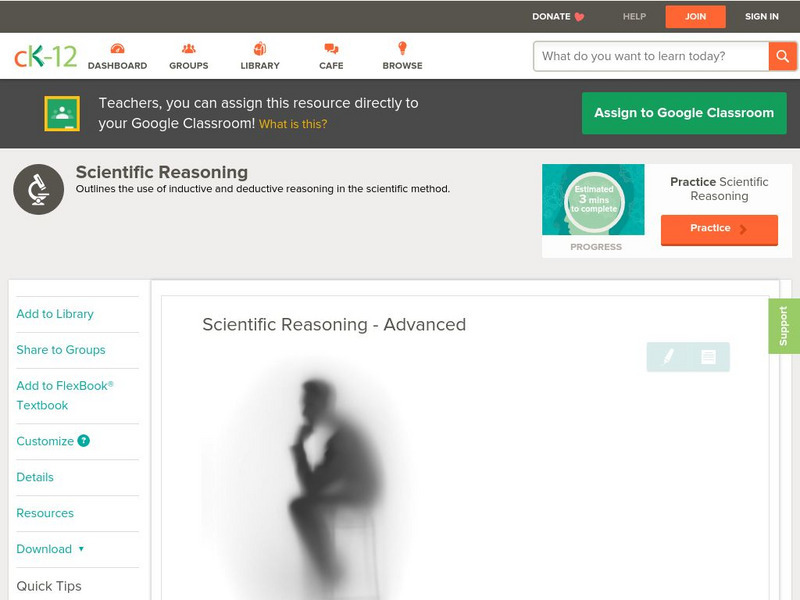TED Talks
Ted: Ted Ed: The Hidden Worlds Within Natural History Museums
When you think of natural history museums, you might picture exhibits filled with ancient lifeless things, like dinosaurs or meteorites. But behind that educational exterior, there are hidden laboratories where scientific breakthroughs...
TED Talks
Ted: Ted Ed: Not All Scientific Studies Are Created Equal
Use this TED Ed lesson, to learn why you should be skeptical of scientific research. Lesson is complete with video, questions, and links to resources for deeper understanding of the topic.
University of California
Understanding Science: Newton's 2nd Law: Inquiry Approach Lesson
For this lesson, students develop their own scientific experiment to test Newton's hypothesis that the acceleration of an object depends on the net force acting upon it and its mass. After completing their designed experiment, students...
University of California
University of California: Understanding Science: How Science Really Works
Need a tutorial about the nature and process of science? Here is your one stop for knowledge about what science is, how it works, science and society, and why science matters. This site expands on your scientific toolbox by allowing you...
University of California
University of California at Berkeley: How Science Works Flowchart [Pdf]
A flowchart for elementary students outlining how the scientific process works.
Science Buddies
Science Buddies: Scientific Method Variables/hypothesis
Find out what variables are in a scientific investigation and what the difference is between an independent, dependent, and controlled variable. Look at samples of different types of variables and find out what makes a good variable.
Climate Literacy
Clean: Animation for Grades 6 12
Students will create an animation to represent one of the many feedback loops that influences climate change. To create their animation, students will use clay, cut paper, whiteboard or other materials commonly found in the classroom....
Climate Literacy
Clean: A Fossil Thermometer
In this activity, students calculate temperatures during a time in the geologic record when rapid warming occurred using a well known method called 'leaf-margin analysis.' Students determine the percentage of the species that have leaves...
University of California
University of California: Understanding Science: The K 2 Teachers' Lounge
A collection of teacher resources on the "how to" incorporate the nature and process of science into your curriculum. Site includes tips for the teacher, sample starting activities, teaching tools, and sample lessons.
University of California
University of California: Understanding Science: The 6 8 Teachers' Lounge
A collection of teacher resources on the "how to" incorporate the nature and process of science into your curriculum. Site includes tips for teacher, sample starting activities, teaching tools, and sample lessons.
University of California
University of California: Understanding Science: The 3 5 Teachers' Lounge
A collection of teacher resources on the "how to" incorporate the nature and process of science into your curriculum. The site includes tips for the teacher, sample starting activities, teaching tools, and sample lessons.
Other
The Dirty Dozen Persistent Organic Pollutants
Use this site to learn about the effects of persistent organic pollutants on the ecology of Antarctic coastal waters. Information is presented for both teacher and student researcher.
University of California
University of California: Understanding Science: The 9 12 Teachers' Lounge
A collection of teacher resources on the "how to" incorporate the nature and process of science into your curriculum. Site includes tips for the teacher, sample starting activities, teaching tools, and sample lessons.
CK-12 Foundation
Ck 12: Scientific Methods
[Free Registration/Login may be required to access all resource tools.] The steps in the scientific method are described in detail in this lesson.
National Association of Geoscience Teachers
Serc: Modeling the Effects of Dam Removal on the Elwha River
Students are introduced to river systems and how they evolve and interact with the Earth's surface over time. They learn about the social and scientific issues surrounding the removal of the Glines Canyon Dam on the Elwha River and...
Science Education Resource Center at Carleton College
Serc: Independent Samples T Test: Chips Ahoy vs. Supermarket Brand
A hands-on investigation where students count the number of chips in cookies in order to carry out an independent samples t-test to see if Chips Ahoy brand cookies have a higher, lower, or different mean number of chips per cookie than a...
Science Education Resource Center at Carleton College
Serc: How Well Can Hand Size Predict Height?
This activity uses student's own data to introduce bivariate relationship using hand size to predict height. Students enter their data through a real-time online database. Data from different classes are stored and accumulated in the...
Science Education Resource Center at Carleton College
Serc: Coke vs. Pepsi Taste Test: Experiments and Inference About Cause
The Coke vs. Pepsi Taste Test Challenge has students design and carry out an experiment to determine whether or not students are able to correctly identify two brands of cola in a blind taste test.
NASA
Nasa: Space Place: What Is Science?
Students learn abut scientific investigation and the difference between hypotheses and theories.
CK-12 Foundation
Ck 12: Earth Science : Scientific Explanations and Interpretations
[Free Registration/Login may be required to access all resource tools.] Presents the relationships of facts, explanations, and opinions in science.
CPALMS
Florida State University Cpalms: Florida Students: Scientific Knowledge Changes
A slideshow tutorial will explain how scientific knowledge can change when new evidence is discovered or new ideas are developed. Take a step back in science history to see some great examples of how scientific knowledge has changed when...
TES Global
Tes: Obtaining and Presenting Evidence Glossary
[Free Registration/Login Required] This reproducible glossary contains 27 terms associated with scientific investigation that are suitable for intermediate elementary and middle grade students.
TeachEngineering
Teach Engineering: Lost in the Amazon
The Lost in the Amazon curricular unit is a series of minds-on and hands-on engineering activities based in the Amazon rainforest in Brazil. Motivated by an adventurous theme, students discover, learn and apply a variety of skills....
CK-12 Foundation
Ck 12: Scientific Thinking: Scientific Reasoning Advanced
[Free Registration/Login may be required to access all resource tools.] Find out about how people use scientific reasoning to think scientifically. Included in the assignment is a four minute video and review questions.




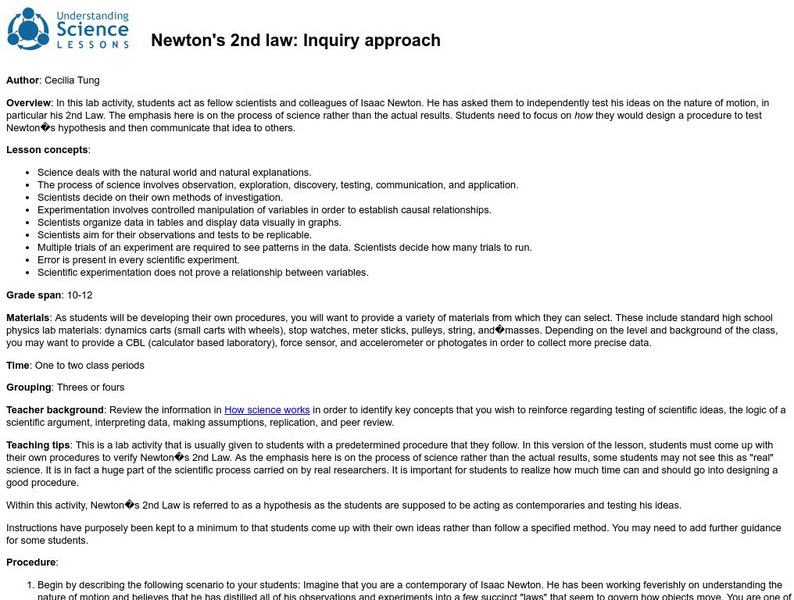

![University of California at Berkeley: How Science Works Flowchart [Pdf] Graphic University of California at Berkeley: How Science Works Flowchart [Pdf] Graphic](https://d15y2dacu3jp90.cloudfront.net/images/attachment_defaults/resource/large/FPO-knovation.png)


